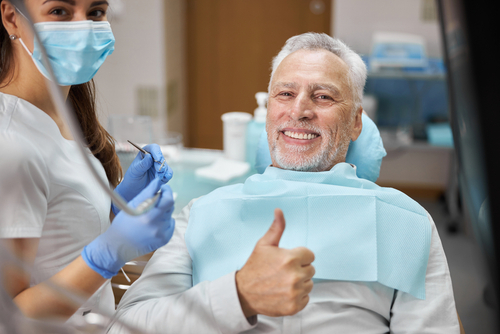The Importance of Regular Dental Check-ups: Maintaining Optimal Oral Health

We understand that life can be busy, and it can be tempting to put off dental appointments. However, regular check-ups are essential for monitoring your oral health, preventing dental issues from escalating, and ensuring that your mouth continues to function optimally. They also provide the opportunity for you to ask your dentist any questions you may have about your oral health. By prioritizing these visits, you are investing in your health and wellness.
Understanding Oral Health
Oral health is a fundamental aspect of your overall well-being. It involves the health of your teeth, gums, tongue, and the rest of your mouth. Optimal oral health means that all these components are in good condition and functioning properly.
A common misconception is that if your teeth look good and you don't feel any pain, then your oral health must be fine. This is far from the truth. Many dental issues, such as gum disease and cavities, can progress silently, causing significant damage before symptoms appear.
Maintaining optimal oral health involves regular brushing, flossing, and rinsing with mouthwash. However, these home practices alone are not enough. Regular dental check-ups are crucial for detecting and treating any potential issues early, before they can cause serious harm.
The Key Role of Regular Dental Check-ups
Regular dental check-ups play a vital role in maintaining optimal oral health. These visits allow your dentist to monitor the condition of your mouth and identify any potential issues early on. Early detection is key in managing dental problems, as it often means simpler and less costly treatment.
During a check-up, your dentist will inspect your teeth, gums, and mouth for any signs of disease or decay. They also take x-rays to get a detailed view of your teeth and jaw. These examinations help to identify issues that you may not be aware of, such as hidden cavities or early stages of gum disease.
Additionally, a professional cleaning is part of the check-up. This process removes plaque and tartar that you may have missed during your daily brushing and flossing. Left untreated, these can lead to serious dental issues, such as gum disease and tooth loss.
The Dangers of Neglecting Regular Dental Visits
Neglecting regular dental check-ups can have severe consequences for your oral health. Without these check-ups, dental problems can progress unnoticed and untreated, leading to serious complications.
For instance, a small cavity that could have been easily treated may grow larger and deeper, eventually leading to a painful toothache or even an abscess. Gum disease, too, can advance silently, eventually causing gum recession, loose teeth, and even tooth loss.
More alarmingly, certain oral health issues have been linked to systemic conditions, such as heart disease and diabetes. By neglecting your dental check-ups, you could be overlooking these serious health risks.
How Often Should You Have a Dental Check-up?
The frequency of dental check-ups can vary based on your individual oral health needs. However, as a general rule, it's recommended to have a check-up every six months. This allows your dentist to keep a close eye on your oral health and catch any potential issues early on.
For those with a history of dental issues, such as gum disease or frequent cavities, your dentist may recommend more frequent visits. Similarly, individuals with certain health conditions, like diabetes, may also require more regular check-ups.
These recommendations are not one-size-fits-all. Always consult with your dentist to determine the best check-up schedule for your unique needs.
Prioritizing Your Oral Health
Regular dental check-ups are an essential aspect of maintaining optimal oral health, preventing dental problems, and protecting your overall well-being.
By prioritizing these check-ups, you are investing in your long-term health. Regular dental visits can help prevent serious dental issues, save you from unnecessary pain and discomfort.
If you haven't already, make a commitment to prioritize your dental health. Schedule your next dental check-up today, and take the first step towards maintaining optimal oral health. Visit Palm Beach Center for Periodontics and Implant Dentistry in our Palm Beach Gardens, Florida. Call (561) 621-3111 to schedule an appointment today.




